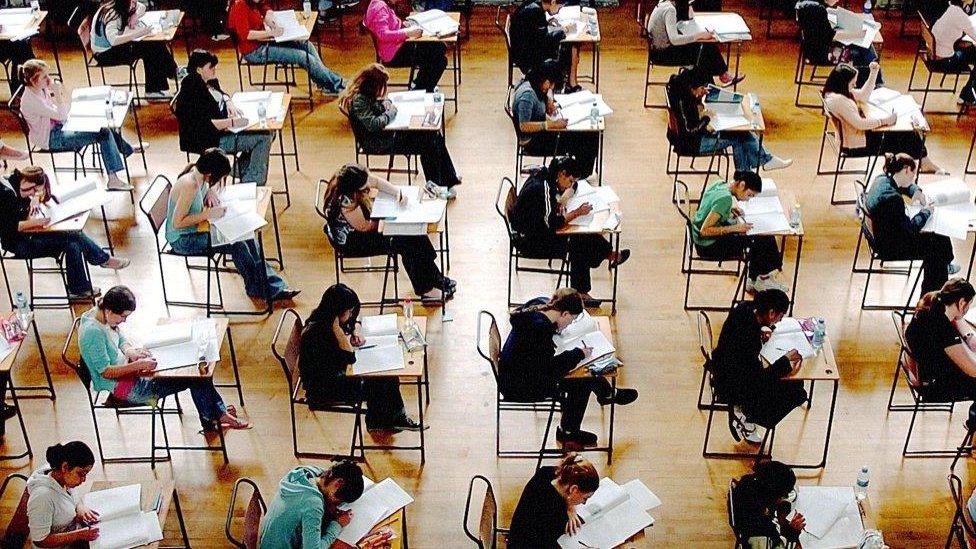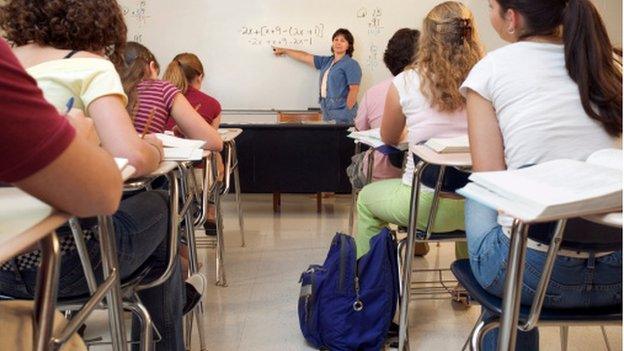GCSE resits cause 'significant problems', says Ofsted boss
- Published

Some teenagers fear being stuck in a cycle of resits
Forcing resits on teenagers who do not get good GCSEs in English and maths is causing "significant problems", the new head of Ofsted has argued.
Amanda Spielman said the policy, introduced in 2013, was "well intentioned" but questioned whether it was "the right way forward".
She pointed out that only a third of students managed to improve their GCSE grades in resits last year.
Ministers say they aim to develop "credible" alternatives to resits.
In 2013, the coalition government introduced a policy that said students in England who fail to get at least C grades in the two subjects should carry on studying them until the age of 18, with the aim of meeting the standard.
But, in her speech, external to the Association of Colleges Ofsted conference,, external Ms Spielman pointed out that, last year, fewer than a fifth of students achieved the required grades when they resat and two thirds did not improve on their original marks.
She called these statistics "frankly miserable".
"That is such a waste," she said.
"We know that for some students this can really knock their confidence."
She pointed out that this area of the curriculum had "dominated almost all discussion in recent months".
"This is a well-intentioned policy, but in its current form we can see that it is causing significant problems."
She added: "Let me be clear, when it comes to success in the labour market, nothing is more important than literacy and maths. We know that they are highly valued, with employer surveys and wage premiums showing that employers will pay more for people who are literate and numerate."
'Grandparents' generation'
She said that learning English and maths were key to unlocking "so many other areas of knowledge - engineering business and IT, but physics and philosophy too."
"And we still have a long way to go to make sure all our students leave education with the knowledge and skills they need," she added.
"According to the OECD's (Organisation for Economic Co-operation and Development) survey of adult skills, England is unique in that our young people have literacy and numeracy skills no better than their grandparents' generation.
"So a focus on English and maths is an indisputable priority.
"But we must ask ourselves whether expecting all students without a C grade to retake English and maths is the right way forward."

The government hopes that Functional Skills qualifications could be a good alternative to GCSE resits
Ms Spielman, who took up her post in January, said she hoped that the government, while maintaining the policy objective, would reflect on feedback from Ofsted and others to "refine its approach to promoting these vital maths and English skills".
A Department for Education spokesman said students who achieved good grades increased "their chances of securing a job, an apprenticeship or progressing to further education".
"We are working closely with the post-16 sector to look at how we can ensure more students are mastering these important skills.
"In addition, we are developing credible, high-quality options for students through reforming Functional Skills qualifications in maths and English to make sure that they deliver the knowledge and skills that employers need, and consequently have credibility and prestige in the jobs market."
- Published6 March 2017

- Published14 March 2016
